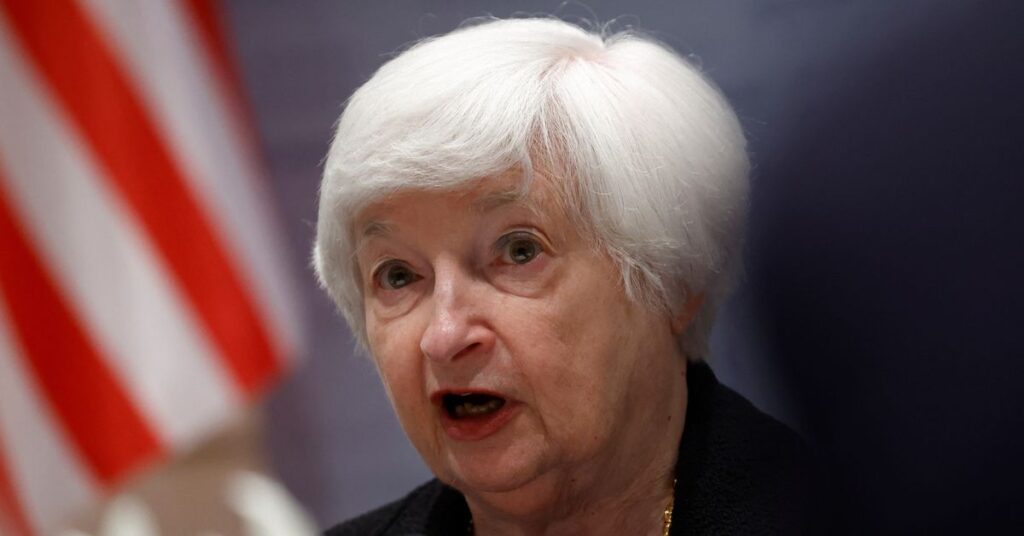BEIJING, July 8 (Reuters) – U.S. Treasury Secretary Janet Yellen, a trailblazer in the field of economics, met with six female economists in Beijing on Saturday, an effort to spotlight gender diversity following meetings with China’s largely male government leaders.
Yellen, the first woman to head the U.S. Treasury, has made women’s contributions and importance to economies a focal point of her tenure, often meeting with women economists and entrepreneurs during her travels, and hailing the benefits of boosting women’s participation in the workforce and leadership.
A senior Treasury official said the lunch with the Chinese economists would give Yellen, who was also the first woman to head the U.S. Federal Reserve, a chance to “interact with a number of people kind of outside the normal policy structure.” Treasury did not name the women participating.
Yellen, 76, told the women she had seen China’s adoption of market-based economic policies transform the country and lift hundreds of millions of people out of poverty since she began her career in the 1970s.
“It is my hope for the benefit of both China and the United States, as well as for the broader global economy, that those policies are carried out moving forward,” Yellen said, echoing comments on Friday to Chinese Premier Li Qiang, in which she urged China to adopt more market-based reforms.
Yellen told the women – one of whom described herself as a feminist economist – she was curious to learn more about their backgrounds and research.
“I’m sure we share similar stories and experiences about what a career in economics is like, and the challenges you can face,” Yellen said. “I see it all the time when I’m almost the only woman in the room, and I’m sure many of you have that same experience at decision-making tables.”
Treasury said Yellen and the participants discussed the Chinese economy and opportunities to increase the representation of women in the workforce, including in leadership positions.
“The Secretary underscored that women’s participation in the workforce is one of the major drivers of creating inclusive growth,” Treasury said. “She also noted that women’s contributions to economics, in particular, are important to help ensure that economic research and policymaking appropriately reflect society’s priorities.”
Chinese President Xi Jinping’s decade as the ruling Communist Party’s general secretary has seen the number of women in politics and top government roles decline and gender gaps in the workforce widen, with the government emphasizing more traditional roles for women.
A June report by the United Nations urged China to adopt statutory quotas and a gender parity system to boost women’s representation in government.
The U.N. Committee on the Elimination of Discrimination against Women found that women comprise just over 26% of deputies to China’s 14th National People’s Congress and since October have had no representation in the 24-member Politburo of the Communist Party, a first in 20 years.
China’s top female politician is Shen Yiqin, appointed in March as one of five state councillors. She ranks higher than a minister and oversees social welfare, veteran affairs and sports.
President Joe Biden’s 25-member Cabinet, by contrast, is the most gender-diverse in U.S. history, with Yellen being one of 13 female members.
One-quarter of the U.S. Senate and 28.7% of the House of Representatives seats are held by women, according to Rutgers University’s Center for Women in Politics.
China also lags in terms of women’s representation in the top echelons of industry, a recent study showed.
Bain & Co and leadership advisory firm Spencer Stuart reported in March that women account for only 19% of top business executives, compared to an average of 25% in leading countries.
Reporting by Andrea Shalal and Yew Lun Tian in Beijing; Additional reporting by Trevor Hunnicutt; Editing by Heather Timmons, Leslie Adler, William Mallard and Kim Coghill
: .


